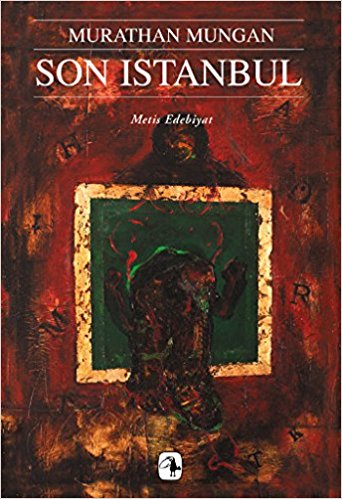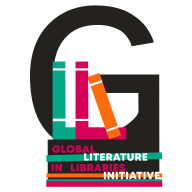Beyond Borders: Murathan Mungan’s Texts
LGBTI (Lesbian, Gay, Bisexual, Transgender, and Intersex) identities have been manifested in Turkish literature since the 1960s. Starting with Sait Faik Abasıyanık, Bilge Karasu, Leyla Erbil, and Tezer Özlü, homosexuality and homoerotic moments begin to be depicted openly in novels and short stories rather than with an ambiguous and closed expression. Other authors who have depicted gay, lesbian and trans characters and written on the themes of homosexuality, sexuality, sex work include Demir Özlü, Ferit Edgü, Adalet Ağaoğlu, Attilâ İlhan, Murathan Mungan, Selim İleri, küçük İskender, Ahmet Güntan, Perihan Mağden, Mehmet Bilâl, Sadık Aslankara, Niyazi Zorlu, Ahmet Tulgar, Hülya Serap Doğaner, Tijen Kino, Sibel Torunoğlu, Zeynep Aksoy, Pınar Küzeci Orhan, Ayşe Kulin, Sema Kaygusuz and Yalçın Tosun.
Turkish “LGBTI literature” is a very recent phenomenon and has not acquired a status as a formal period in Turkish literary history. European and American queer literatures, on the other hand, have been established as a defined area of study and criticism not only for gender and sexuality studies but also within the genres within which they appear. Queer literatures create spaces for themselves in almost every genre and theme.
Within the scope of Turkish literature, however, LGBTI literatures are not recognized as a distinct category by academics, literary historians or critics. Although LGBTI literatures remain invisible in the mainstream literary circles, online platforms have become the way to follow them. LAMBDA Literary, Goodreads, Internet magazines[1]and various apps that are not widely followed in Turkey, are channels that allow readers to keep a finger on the pulse of LGBTI and queer literatures. In fact, if this area is ignored by mainstream literary criticism, the way of making the literary form falls on readers and critics who are aware of alternatives, rather than literary critics who put pressure on the field. Essays and criticism in these new circles, queer and LGBTI studies will then provide resources that can help readers.
***

Murathan Mungan, one of the most prolific poets and authors of contemporary Turkish literature, began as a playwright and poet and eventually became known for his short stories as well. Thanks to his first short fiction collection Son İstanbul [Latest Istanbul] (1985), followed by Cenk Hikâyeleri [Cenk Stories] (1986), Kırk Oda [Fourty Rooms] (1987), Lal Masallar [Garnet Tales] (1989), he became one of the most important figures of 1980s literature.[2] In her article “From Romantic Friendships to Lesbian Love”[3], for K24, Hande Öğüt argues that “The short stories and novels of Murathan Mungan, which started in the ‘80s and lasted until the 2000s and textualized in his unique narrative universe, is an important milestone in Turkish LGBTI literature.”
The 1980s in Turkey was a time shaped by the September 12th military coup and its aftermath. Surprisingly, many works about different sexualities and sexual orientations were published during this homophobic and transphobic period. With the adoption of homosexuality, transsexuality, transvestism and all forms of sexuality in literature, LGBTI identities are presented in a largely marginal and stereotypical way. For example, stereotypical representations of homosexuality and transvestism are presented in Attila Ilhan’s Fena Halde Leman (1980), Haco Hanım Vay (1984), and Yanlış Kadınlar Yanlış Erkekler [Wrong Women, False Men] (1985). They are presented as corrupt, immoral and with a sense of otherness.
The works of Murathan Mungan, in contrast, do not other, marginalize and stereotype. The homosexual and transgender characters of Mungan’s stories are not oppressed in the trap of heteronormativity. These works are a turning point for LGBTI literature in Turkey. Mungan is doing this by the characters whose sexual orientations and gender identities are not formed by heteronorms. Other components of the text (plot, space, time, narrator) constituting also do not conform to society’s moral norms and cultural perceptions.

Mungan’s first short story book, Son İstanbul, consists of the “Dört Kişilik Bahçe” [Garden For Four] and “ÇC” [ÇC is an abbreviation for Çukercuma – a neighborhood in Istanbul] stories. The inclusion of this book in LGBTI literature suggests that the main focus of the “ÇC” story is around gay and bisexual male characters. The story is a postmodern narrative that presents cross sections of the relationships of the gay friends with their daily lives. This work is a model in which the denominator of a homophobic situation and discourse is extensively criticized for heteronormativity. In addition, the narrative contains many expressions from “Lubunca”, which is a code language developed by the LGBTI community in Istanbul. For example more than half of the stories are centered around a Turkish bath, a homoerotic space for homosexual men and gullüm, a word that those in the know would understand to mean “joking”, “horsing around” or “enjoying yourself.” The homoerotic space of the bath also links the stories together. The bath creates the opportunities to seek sexual partners and sex work, to socialize and to freely display their identities. It also allows homosexual and bisexual men to spend an enjoyable Sunday together.
While Cenk Hikâyeleri, Kırk Oda and Lal Masallar are not directly LGBTI-themed, they do contain homoerotic moments, emotions, heterosexism and criticism of hegemonic masculinity. Although these texts are not directly included in LGBTI literature, their narratives can be said to have a queer bend with much questioning of gender and heterosexual. Mungan’s “Kâğıttan Kaplanlar Masalı” [Paper Tiger Tales] in Kaf Dağının Önü is a work that can be directly categorized as “LGBTI literature”. The homosexual main character who constantly changes as a result of questioning his identity, confrontations with his close friends and getting involved with the far left.
Another work of Mungan’s categorized as LGBTI literature is the Üç Aynalı Kırk Oda. The “Gece Elbisesi” [Evening Gown] in which a man named Ali dreams up elaborate fantasies in which he experiments with different sexualities and travestism. This text shows that manhood and a heterosexual orientation cannot be confined to the norms of sex and sexuality forced on the character of Ali. Mungan has presented all the dilemmas of gender and heterosexuality not only with Ali and his mother but also with the view of children, adolescents, fathers, and grandfathers. The neurotic moments of Ali, who struggles with gender identity and sexual orientation starting at childhood betray the cracks in the ideas of manhood and family with all its fascination in mainstream literature. This is a very important effort both for LGBTI literature and for queer literature or perspective. In Turkey, aberration from heterosexual norms are viewed as a major threat both in terms of gender identities and sexuality, Mungan’s effort in the Üç Aynalı Kırk Oda challenges the traditional rules of society and literature. This necessitates careful identification of roles in the literary texts whose criticism is defined by the society, such as “women”, “male”, “homosexual”, “transsexual” and normative references directed to those who do not have the desired identity.
References
Kahraman, Hasan Bülent Kahraman. “1987’de Roman Öykünün Gerisindeydi”. Hürriyet Gösteri. number: 88, Ocak 1988, 3-6.
Öğüt, Hande. “Romantik dostluklardan lezbiyen aşka”. K24. 7.01.2016. http://t24.com.tr/k24/yazi/kadinlar-arasinda,524. 29.04.2017.
*Special thanks to Damla Umut Uzun, Eyüp Şen and Müge Yaman for their contributions.
[1] Internet magazines and journalism have gained momentum in recent years in the field of literature in Turkey. Examples of this include Internet platforms such as K24, monograf, postdergi, Sabit Fikir (printed edition available), and GazeteduvaR, which present up-to-date content in a manner that adheres to pluralistic principles.
[2] Hasan Bülent Kahraman “1987’de Roman Öykünün Gerisindeydi” [Novel Was Lagging Behind Short Story in 1987]. Hürriyet Gösteri. number: 88. January 1988 (3-6).
[3] “Romantik dostluklardan lezbiyen aşka”

Sevcan Tiftik graduated from the department of Turkish Language and Literature
Teaching at Balıkesir University, and received her M.A in Turkish Literature from Bilkent University. Her thesis was titled “Comparative Queer Readings: Queer Potentials in The Texts of Kulin, Mungan and Toptaş”. Her working fields are themes of the body, queer, disability and gender studies in Turkish Literature.
Her articles were published in journals such as Kaos Q+, Kaos GL, Postdergi and Şiirden. She has also been part of the editorial board of Kaos Q+, a refereed journal, since the second issue. Ms. Tiftik is one of the editors of next years’ queer literature theme in KaosQ+. She worked as an instructor in Bilkent University Turkish Department between 2015-2017.
A special thank you to Dayla Rogers, who helped edit and translate this article.

4 thoughts on “LGBTI identities in Turkish Literature”